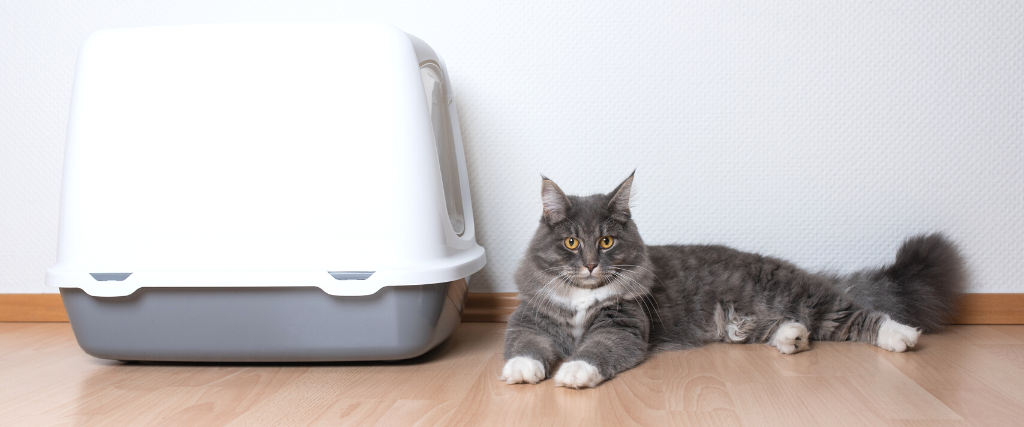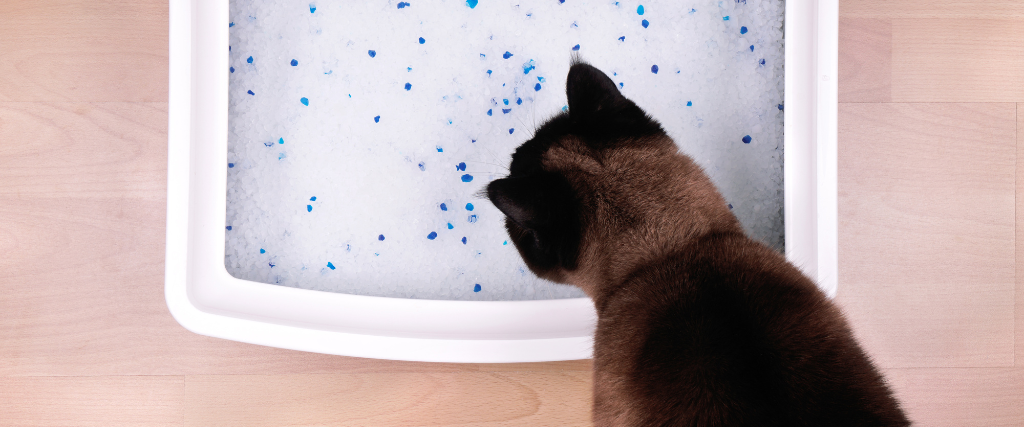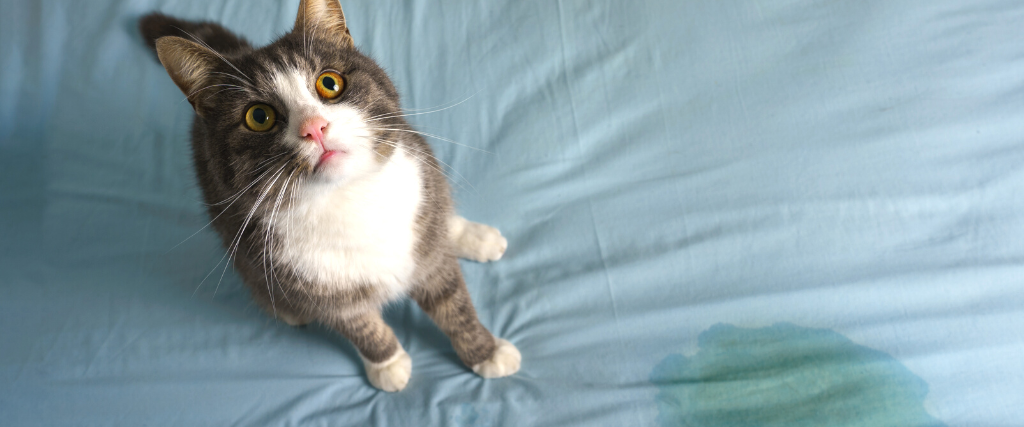Let's Talk About Stress
Have you ever felt stressed? Did you ever overindulge on your favorite treat to help “cope” with the stress? What does your pet do when he or she is stressed? For a lot of pets, their coping mechanism for stress is acting out. For dogs, this may mean destructive behavior, and for cats, it often means inappropriate urination.
Pets can become stressed for many different reasons. For example, there are many dogs that become stressed from thunderstorms or fireworks because of the loud noise that they make. These dogs are often very anxious, will shake, and sometimes exhibit destructive behavior.
Cats tend to handle stressful situations by either hiding or urinating inappropriately. Cats also tend to be more sensitive to subtle changes in their environment than dogs are. Something simple such as having a guest stay at your house can upset some cats.

So What Do You Do For Your Stressed Pet?
First, call your veterinarian. We are here to help. Depending on the situation, will depend on the course of action taken. For example, if you have a dog with a thunderstorm phobia I would discuss the Thunder Shirt with you (works for some pets and not for others), pheromones, and herbal/neutraceutical remedies, and then if all else fails, we would discuss drug therapy.
In the case of inappropriate urination in cats, it is a bit more complex. First, your veterinarian will probably check a urine sample to make sure your cat does not a urinary tract infection. Assuming everything checks out ok, there will probably be a discussion about possible changes in the animal's environment. In most cases, the stressor, such as a new pet, cannot be removed from the situation. Next, a discussion about litter boxes will occur. Cats can be very particular about what type of litter box they have, the location of the box, the type of litter used, and other factors. Most cats tolerate their litter boxes despite what their human chooses; however, all it takes is one stressful event to set them over the edge. If everything checks out and/or environmental changes do not improve matters, then the next step may be a pheromone. Feliway diffusers are one type of pheromone that may work. These do need to be refilled once a month. The cat pheromone is calming to many cats and helps relax them. A lot of inappropriate urination patients respond to this step. For those particularly tough cases, drug therapy may need to be used.
Let's Talk About Autumn - A Success Story
Take Autumn, a clinic cat as an example. She came to the hospital because she was stressed. The hospital did not know what exactly stressed her out in her previous home, but her coping mechanism was to urinate on her previous owner’s new couch and bed. Her previous owner could not handle this anymore so she became a clinic cat. In this case, the previous owner did not want to deal with Autumn urinating all over her furniture, which is understandable.
 Autumn's new hospital staff had never met Autumn prior to her being surrendered to them. The first thing to manage Autumn's problems was to get a urine and blood sample from her to make sure that there were no medical concerns underlying her inappropriate urination. When the test checked out normal, the decision was to wait and see what happens. There was a futon and a couch at the clinic which she had access to. If she started urinating on one of those items, Feliway would be used.
Autumn's new hospital staff had never met Autumn prior to her being surrendered to them. The first thing to manage Autumn's problems was to get a urine and blood sample from her to make sure that there were no medical concerns underlying her inappropriate urination. When the test checked out normal, the decision was to wait and see what happens. There was a futon and a couch at the clinic which she had access to. If she started urinating on one of those items, Feliway would be used.
Autumn has lived in the hospital for over six months. Since the day she moved into the clinic she has never urinated anywhere but her litter box (except the one night we accidentally locked her in reception and she used the potted plant—opps!). Autumn's case is extreme in the sense that she was taken out of the environment that caused her stress and the symptoms resolved. Most people are willing to try other steps before giving their pet away, and if Autumn was urinating all over the clinic other measures would have been initiated.
For Autumn a new home worked out just fine for her. The original plan was to adopt her out, but after a couple of months of her living at the clinic and making sure her issues did not show up again she became part of the hospital family. So now Autumn spends her days greeting clients, lounging in her bed on the reception counter, trying to help everyone type, and most importantly using the litter box like a good girl.

